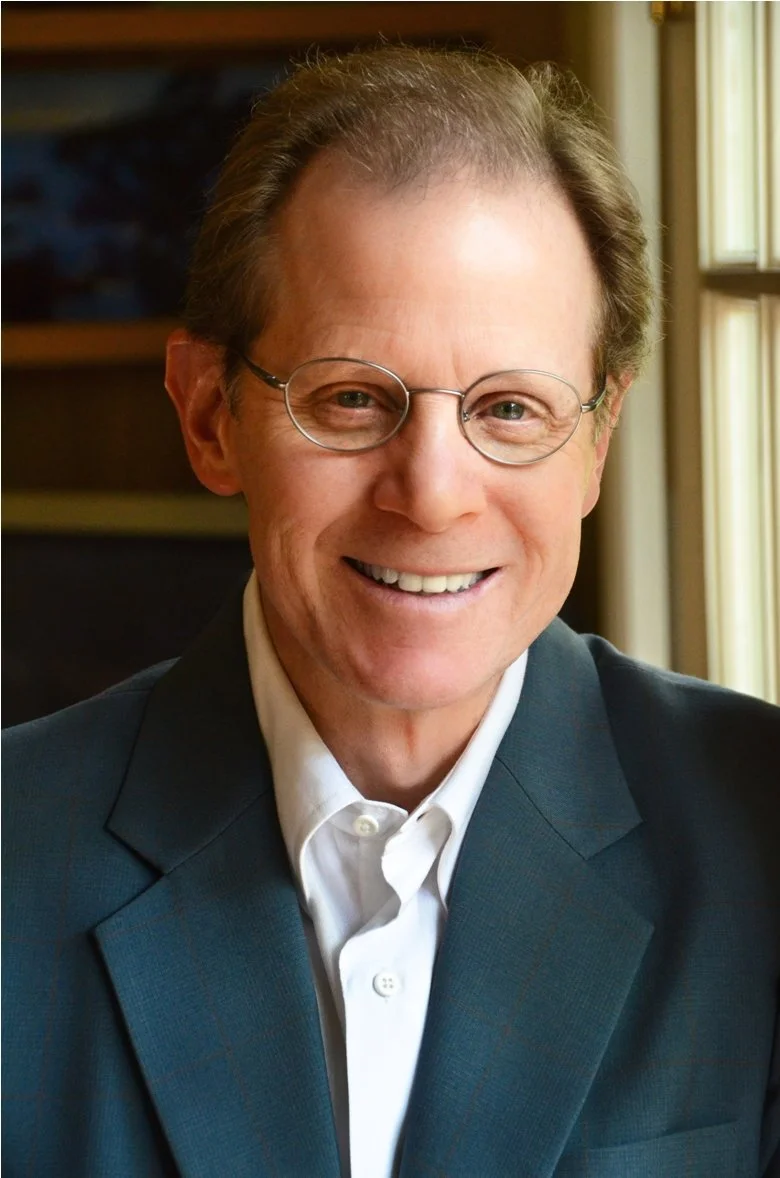Meet Dan Siegel, Author of IntraConnected
Modern culture is not promoting an integrative self, identity, or belonging. This impairment to integration is leading to the accelerating chaos and rigidity in our personal, public, and planetary lives. - Dr. Dan Siegel, from his book IntraConnected
Exploring the nature of how our experience of what we call “self” emerges across the lifespan.
Both a personal and general meditation on identity and belonging, Daniel J. Siegel’s book combines personal reflections with scientific discussions of how the mind, brain, and our relationships shape who we are. Weaving the internal and external, the subjective and objective, IntraConnected reveals how our culture may give us a message of separation as a solo, isolated self, but a wider perspective unveils that who we are may be something more—broader than the brain, bigger even than the body—and fundamental to social systems and the natural world.
Our body-based self—the origin of a Me—is not only connected to others but connected within our relational worlds themselves—a WE—forming the essence of how we belong and our identity. If the pandemic has taught us nothing else, it has taught us that we are all connected. IntraConnected discusses that bond, as well as other realities of our intraconnected lives.
edited book excerpt from
intraconnected: mwe (me + we)
By Daniel J. Siegel, MD
Consilience: the linking together of principles from different disciplines, especially when forming a comprehensive theory. Merriam-Webster Online Dictionary
The journey toward a consilience of knowledge - that common ground of a set of discoveries derived from independent ways of knowing - might be a useful and respectful attempt to see the whole elephant picture of our situation on Earth, rather than relying on only one particular way of studying a part of the whole. If we try to find the common ground across ways of knowing, to not only illuminate a perhaps deeper sense of the truth of the world, we might also be able to build helpful bridges across what seemed like insurmountable divisions, bridges that offer an effective pathway for cultivating a healthier world in which we all can live. And maybe, the doubting mind of this body says, just maybe, that could be of benefit to our individual and collective journey ahead.
What are we adding in our conversation here that hasn't already been addressed for thousands of years in wisdom teachings? We are acknowledging, with deep respect and gratitude, these ancient teachings, and we are offering to not only remind ourselves of this wisdom but also to add to this focus on self. We are connecting the teachings from Indigenous knowledge and of contemplative practice to the contributions of empirical science in hopes that weaving longstanding insights with modern views may bring a consilient strength to our human narrative, our ongoing conversation, about who we are and where we are going. From the framework of interpersonal neurobiology, it seems consiliently clear that health is based on integration, the honoring of differences, and the cultivation of linkages. We are using the linguistic term integration to name this balance of elements as being unique, specialized, or differentiated on the one hand and then connected, interwoven, or linked on the other. Within the linkage, there is no impeding of the differences. If we are adding anything to this ancient topic, it is to name integration directly as the process of well-being, to identify the chaos and rigidity that arise when integration is not facilitated, and then to suggest ways to cultivate integration to achieve states of well-being, of harmony, of health.
Opening to this consilience across ways of knowing brings up the scientific notion, paralleled by contemplative and Indigenous teachings, that an excessively differentiated self in modern culture may be at the root of our most pressing challenges today. We can state the science-based notion this way: Modern culture is not promoting an integrative self, identity, or belonging. This impairment to integration is leading to the accelerating chaos and rigidity in our personal, public, and planetary lives.
This is the impetus for our journey here, to dive deeply into self, identity, and belonging. We will explore a more universal view of self, one grounded in science and that sees personal existence as purposeful and meaningful, not separate from others, and in kinship with all living things. We’ll look at evidenced-based findings that suggest it’s both possible and beneficial to broaden our sense of belonging, expand our identity, enable ourselves to have an experience of self that extends beyond the body and even beyond just our personal relationships and beliefs, and have membership in something more that connects us to one another as a humanity, to nature, and to the reality of the universe.
While the specific details may be actively debated in the academic literature, the concept that we have various ways to construct a sense of self has important value. We will build on this concept of the construction of self, acknowledging that the details of how to measure and delineate the nature of these inner and relational identity processes are actively being debated.
One basic premise we will suggest is that the journey toward a widened sense of self does not need to leave our inner bodily experience out of this extension of who we are; we can live a life that is both the inner, individual me and the relational, connected we. This integration of self is what our conversational journey is all about. A consilient proposal is to see how human cultural evolution might move in an integrative direction, honoring both differentiation and linkage, cultivating and combining both the inner identity of me and the inter identity of we as an intraconnected, integrative identity of MWe.

